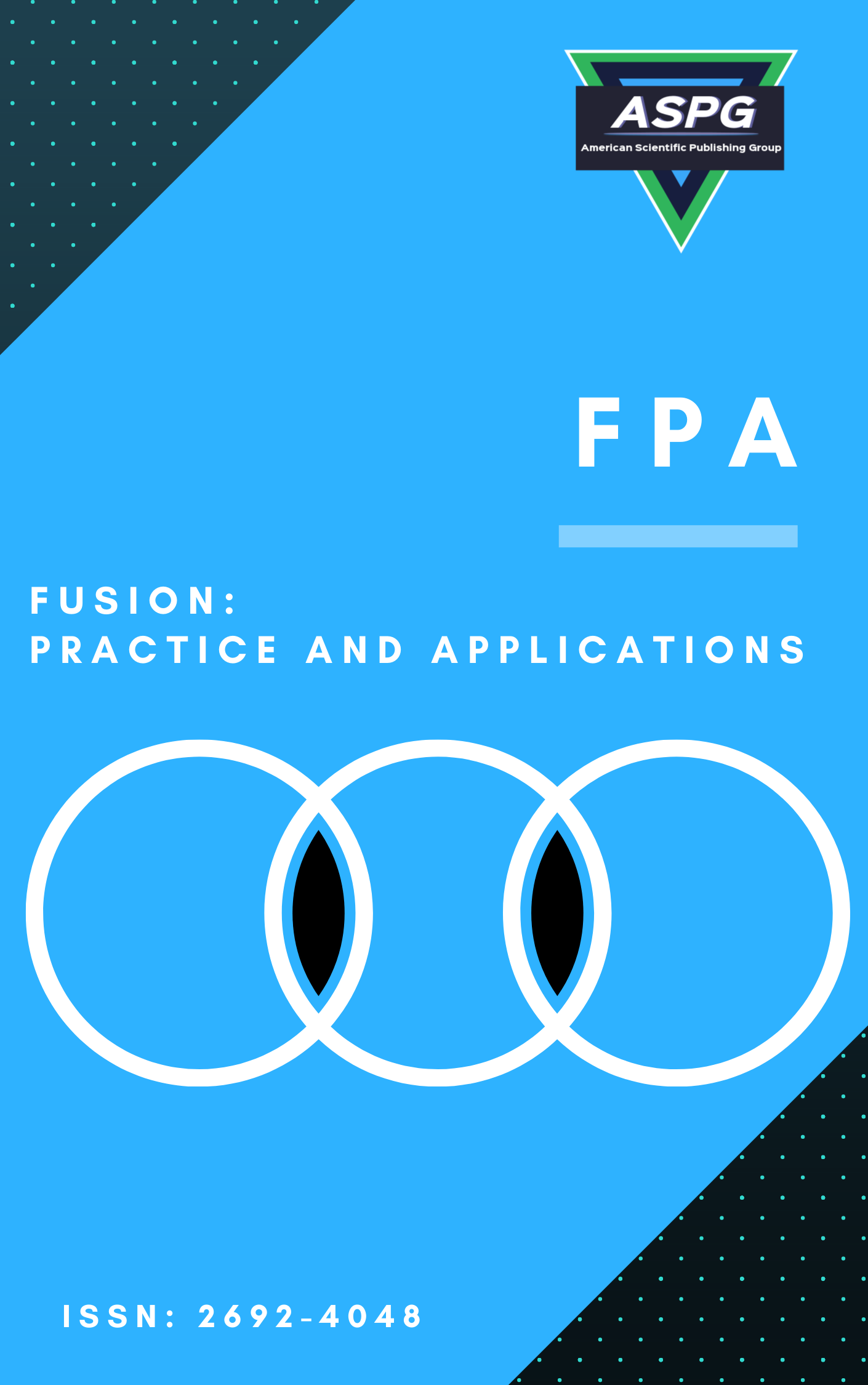

Volume 3 , Issue 2 , PP: 66-72, 2021 | Cite this article as | XML | Html | PDF | Full Length Article
Vanita Jain 1 * , Monu Gupta 2 , Neeraj Joshi 3 , Anubhav Mishra 4 , Vishakha Bansal 5
Doi: https://doi.org/10.54216/FPA.030202
The use of Android apps has significantly increased over the past few years, making android the most accepted and trusted operating system for smart devices. According to a survey, in 2020, over 30.5 billion Android mobile apps were downloaded compared to merely 6 billion in 2016, which is quite noteworthy. People worldwide are also becoming habitual to the use of android apps such that they want everything to be available on their mobile devices. The authors have developed ‘E-College’ - an android-based mobile learning application that helps users grasp various programming languages like C++, Java, and Python and help them with their undergraduate computer engineering course curriculum-related resources. The proposed application allows the learner to access a particular programming language's tutorials and explains it with an example and the required code snippet. Using this application, users can also assess themselves by utilizing the provided quiz section, which has various questions. The proposed mobile application also has a recommendation system section that uses machine learning techniques to intelligently serve the most relevant and suitable content for each user. It considers the user's previous learnings on the application and suggests new and relevant learning content for that particular user. During the ongoing global pandemic situation, E-college application is the most effective way to learn and acquire technical skills without stepping out of their home and fraee of cost.
E-learning, E-college , Smart Education , Android Applications
[1] Ejiyi, C. J., Deng, J., Ejiyi, T. U., Salako, A. A., Ejiyi, M. B., &Anomihe, C. G. (2021). Design and Development of Android Application for Educational Institutes. In Journal of Physics: Conference Series (Vol. 1769, No. 1, p. 012066). IOP Publishing.
[2] Kalbandi, I., Dale, R., Bhujbal, A., &Saraf, N. Smart technical skill assessment android application using machine learning.
[3] Ansari, M. S., &Tripathi, A. (2017). An investigation of effectiveness of mobile learning apps in higher education in India. International Journal of Information Studies and libraries, 2(1), 33-41.
[4] Ardito, C., Costabile, M. F., De Marsico, M., Lanzilotti, R., Levialdi, S., Roselli, T., &Rossano, V. (2006). An approach to usability evaluation of e-learning applications. Universal access in the information society, 4(3), 270-283.
[5] Costabile, M. F., De Marsico, M., Lanzilotti, R., Plantamura, V. L., &Roselli, T. (2005, January). On the usability evaluation of e-learning applications. In Proceedings of the 38th Annual Hawaii International Conference on System Sciences (pp. 6b-6b). IEEE.
[6] Sheikh, Y. A. (2017). Higher education in India: Challenges and opportunities. Journal of Education and Practice, 8(1), 39-42.
[7] Kurniadi, D., Abdurachman, E., Warnars, H. L. H. S., &Suparta, W. (2019, December). A proposed framework in an intelligent recommender system for the college student. In Journal of Physics: Conference Series (Vol. 1402, No. 6, p. 066100). IOP Publishing.
[8] Yi, B., Zhang, D., Wang, Y., Liu, H., Zhang, Z., Shu, J., &Lv, Y. (2017, June). Research on personalized learning model under informatization environment. In 2017 International Symposium on Educational Technology (ISET) (pp. 48-52). IEEE.
[9] Arista, F. S., &Kuswanto, H. (2018). Virtual Physics Laboratory Application Based on the Android Smartphone to Improve Learning Independence and Conceptual Understanding. International Journal of Instruction, 11(1), 1-16.
[10] Hendikawati, P., Zahid, M. Z., &Arifudin, R. (2019). Android-Based Computer Assisted Instruction Development as a Learning Resource for Supporting Self-Regulated Learning. International Journal of Instruction, 12(3), 389-404.
[11] Ho, S. B., Teh, S. K., Chai, I., Tan, C. H., Chean, S. L., & Ahmad, N. A. (2021). Assessing Python Programming Through Personalised Learning Styles Model. Lecture Notes in Electrical Engineering, 724, 139-151.
[12] Zeng, R., &Luyegu, E. (2012). Mobile learning in higher education. In Informed design of educational technologies in higher education: Enhanced learning and teaching (pp. 292-306). IGI Global.
[13] Suresh, M., Vishnu Priya, V., &Gayathri, R. (2018). Effect of e-learning on academic performance of undergraduate students. Drug Invention Today, 10(9).
[14] Prashaanthi, N., &Brundha, M. P. (2018). A comparative study between popplet notes and conventional notes for learning pathology. Research Journal of Pharmacy and Technology, 11(1), 175-178.
[15] CarbonillaGorra, V., &Bhati, S. S. (2016). Students' perception on use of technology in the classroom at higher education institutions in the Philippines.
[16] Marklund, B. B., & Taylor, A. S. A. (2016). Educational Games in Practice: The challenges involved in conducting a game‑based curriculum. Electronic Journal of e-Learning, 14(2), pp122-135.
[17] Singh, Upanya& Srivastava, Nandini& Kumar, Adarsh. (2016). JIIT-edu: An android application for college faculty.
[18] Kadam, A. J., Singh, A., Jagtap, K., &Tankala, S. (2017). Mobile Web-Based Android Application for College Management System. International Journal of Engineering and Computer Science, 6(2), 20206-20209.
[19] Prashant, B. P., Anil, M. S., &Dilip, K. M. (2017). Online Chatting System for College Enquiry using Knowledgeable Database.
[20] Saryar, S., Kolekar, S. V., Pai, R. M., &Pai, M. M. (2019). Mobile learning recommender system based on learning styles. In Soft computing and signal processing (pp. 299-312). Springer, Singapore.
[21] Rivera, A. C., Tapia-Leon, M., & Lujan-Mora, S. (2018, January). Recommendation systems in education: A systematic mapping study. In International Conference on Information Technology & Systems (pp. 937-947). Springer, Cham.
[22] Bhardwaj, R. K., & Kumar, S. (2017). A comprehensive digital environment for visually impaired students: user’s perspectives. Library Hi-Tech.
[23] Mynavathi, R., Rajendran, M. P., Prasadh, S. A., Bharath, K., Divakar, T. M., &Manikandan, M. K. Printed Characters To Document Using Ocr–An Android Application.
[24] Rajak, B., Menon, A., Patel, J., &Solavande, V. An Android Based Detection of Text Extraction from Image.IOSR Journal of Computer Engineering (IOSR-JCE), 22(2), pp16-19.